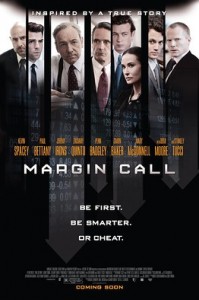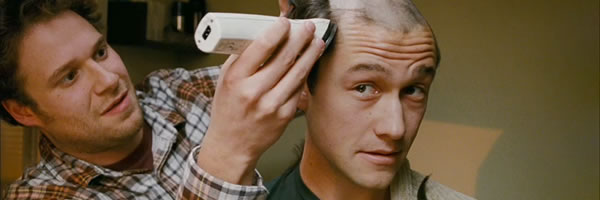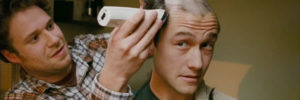Interview: Andy Borowitz of The 50 Funniest American Writers*
Posted on October 25, 2011 at 3:59 pm
Andy Borowitz really understands what it means to be funny. He is the first recipient of the National Press Club’s humor award and his @BorowitzReport Twitter feed is constantly circulated with LOLs. His new book is The 50 Funniest American Writers*: An Anthology of Humor from Mark Twain to The Onion, an instant best-seller and sure to be a popular gift for the holidays. It is filled with favorites, surprises, and surprises from favorites, like a gem of a short story by the late John Hughes that has not been in print for decades and was the beginning of his “Vacation” series of films. This book provides guaranteed happy laughter for anyone who reads it.
Who was the first author you read who made you laugh?
Woody Allen. It was the early 1970’s, when his first prose collections, Getting Even and Without Feathers
, came out. I couldn’t believe someone could be that funny. I still can’t.
What made Twain’s approach to humor so different from earlier writers?
I sometimes think Twain is like America’s Shakespeare because he writes about human beings in a universal way that transcends time and geography. You read humorists who came before Twain – and after, for that matter – and they seem very bound to their time and place. We recognize ourselves in Twain’s characters. And even his political humor, which one would expect to seem dated, isn’t. Example: “Suppose you were an idiot. And suppose you were a member of Congress. But I repeat myself.”
Is there an American style of humor?
I’ll defer to Mark Twain on that one. He wrote in his essay “How to Tell a Story” that American humor was essentially deadpan – the storyteller is funny because he appears to be serious. That’s true of Twain, and also true of The Onion – so maybe he has a point there.
Do funnier politicians win more elections?
Almost always the opposite is true. Case in point: Bob Dole. He was elected to the Senate many times, but whenever he ran for national office, his taste for a mean or cutting remark seemed to undermine him. You always got the feeling that Dole would sacrifice a million votes if it meant getting a really good one-liner off. I think if I were a politician I would be just like him. I would lose big-time.
Why are writers like George Ade and S.J. Perelman so often overlooked?
In general, humor is an evanescent thing. When I was reading material for the book, I came across many humorists who were huge in their day and are practically forgotten today. It was one of the joys of this assignment to be able to resurrect some of them. George Ade’s most popular series of humor pieces were called “Fables in Slang,” and it’s not hard to see why humor pieces written in turn-of-the-century American slang are a little hard to get now. As for S.J. Perelman, he specialized in literary parody, and some of the things he was parodying aren’t so well known today. In general, I think humor falls out of fashion more quickly than other genres. Some of the funny writing that’s beloved today may be incomprehensible to readers fifty years from now.
How did you find that early piece by John Hughes?
I met John Hughes in Hollywood in the early 1980’s, right before his first film, Sixteen Candles, came out. (We were going to work on a movie together but like many things in Hollywood, it never happened.) He told me about his days as an advertising copywriter – a job he hated – and how he submitted pieces to National Lampoon to get his start in comedy. So when I started working on the anthology, I went back through the National Lampoon archives looking for Hughes pieces. The one I chose, Vacation ’57, is one of the funniest short stories ever written, in my opinion. (It also was the basis of the successful Vacation films starring Chevy Chase.) It hasn’t appeared in print since the 1970’s, when it appeared in the Lampoon. Some readers have said that The 50 Funniest American Writers is worth buying for this piece alone. I heartily agree.
Molly Ivins wrote very topical and often very local pieces. What makes her work so funny for people who have no connection to the politicians she wrote about?
She has a real kinship with Mark Twain, I think, in that she finds the universal in the specific scoundrels she’s writing about. A few years before she died, I did a show with her in Austin and every joke out of her mouth slayed the audience. I love this one: “Next time I tell you someone from Texas should not be President of the United States, please pay attention.” Eerily timely today.
You made the unusual choice to include stand-up comedy. Do you think that reads as well as it comes across when it is delivered live?
Well, I didn’t exactly do that. I didn’t write down transcripts of stand-up routines, because that would be totally lame. It’s obviously much better to enjoy stand-up comedy in performance, and thanks to DVDs and YouTube, that’s very easy to do now. I only considered published writing by stand-ups. (An arbitrary distinction, I know, but everything about this anthology is arbitrary.) I read books written by comedians – George Carlin, Wanda Sykes, Bernie Mac, Larry Wilmore and Lenny Bruce are included – and only used selections that were funny on the page. In the case of Bruce and Wilmore, the writing I chose was never a part of their stand-up acts – it was written to be read, not performed. As for George Carlin, he was a bestselling author many times over because his writing is laugh-out-loud funny.
Where should we look for today’s best humorous writing?
I love The Onion, although I usually avoid reading it because I don’t want any of my fake news at The Borowitz Report to overlap with theirs (sometimes we do come up with similar ideas, which is inevitable). Young writers like Sloane Crosley keep churning out funny books (Sloane also writes a funny blog for The New York Times). The New Yorker, which has published everyone from James Thurber and Dorothy Parker to Woody Allen and David Sedaris, is always finding new comic voices, like Yoni Brenner and Amy Ozols, who I think are hilarious. And there are always funny new writers turning up on Twitter and elsewhere online. The nice thing about the Internet is that the magic of crowdsourcing acts as kind of a curator: if someone is writing something funny somewhere, it’s only a matter of time before people find it and share it with others.
Was it as much fun to curate this book as it seems?
I’m glad that the fun of the project comes through. I had a blast. The Library of America is the best publisher I’ve ever worked with. It’s a nonprofit, too, so none of us were in this to make money – we just put all our hearts into it and tried to put together something we’d love and be proud of. What’s surprised me is that at the end of the day, the book turned out to be a bestseller. On its very first day of publication, the book was #8 on Amazon and the #1 humor book in America. That totally took me by surprise. I guess the lesson for me in all of this is that if I want a bestseller I should get Mark Twain and The Onion to write it for me.
Will you do a sequel?
It’s possible. I write in the introduction that this book is by no means definitive; it’s just a playlist of fifty pieces of writing that make me laugh. Do I have enough favorites for The 50 Other Funniest American Writers? Absolutely.









